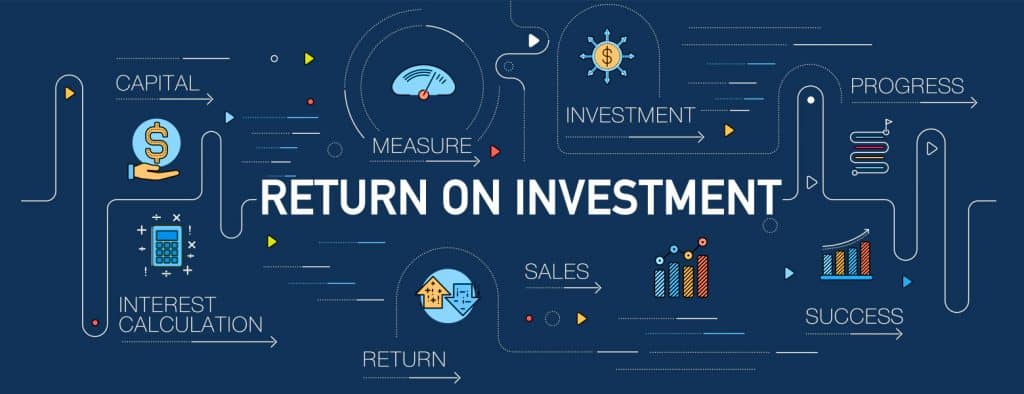There is a groundswell of professional observations that ESG / Sustainability has truly gone mainstream over the last several years. I can think of no better way to validate this growing understanding than to explore the ultimate question we must ask … is ESG / Sustainability leading to real return on investment?
The answer is … “yes,” if you know where to look.
Findings
Evidence is mounting that there is a real ROI advantage to companies that include ESG / Sustainability as an integral part of competitive, capital, and operational strategy.
- Corporate Responsibility (a.k.a. ESG and/or Sustainability) can help to increase sales revenue up to 20 percent and affect variations in customer satisfaction by 10 percent or more. It can also reduce the company’s staff turnover rate by as much as 50 percent, as found in the Project ROI study sponsored by Campbell Soup [$CPB] and Verizon [$VZ].
- 43 percent of US-based company finance executives have indicated that revenue growth is a key driver for their actions on sustainability, of which 87 percent have experienced some level of revenue growth over the past 12 months, based on recent interviews of 210 executives conducted by ING.
- 66 percent of consumers have reported that they are willing to spend more for goods and services that have a positive impact on the world around them, as Nielsen [$NLSN] found in a study of 30,000 consumers in 60 countries. Nielsen concludes that “committing to sustainability might just pay off for consumer brands.”[3]
Quickly “book-ending” these findings with a leap from top-line to bottom-line evidence…
- Even Barron’s has noticed the ROI connection and, in its recent February issue, published the first ranking of Barron’s “100 Most Sustainable Companies in the U.S.” In compiling their list, Barron’s found the 2017 share price performance of these 100 companies as a whole returned 29 percent, compared with 22 percent for the S&P 500 Index, and observed that “…what began as an expression of values is finding wider currency as good corporate practices.”
Focusing on ESG ROI
To validate that companies are actually realizing a real return on their ESG/Sustainability investments and that it is not just a bunch of third-party rater/ranker/researcher hype, I decided to drill-down on Barron’s 100 list (Campbell Soup, cited above, is #57 on the list) in two ways.
First, I glanced at the list to identify a handful of companies whose ROI vignettes were fast to find via an internet search. One can infer the ROI for the following investment stories as embedded in their P&L:
- UPS is saving $400 million annually from its investment in its proprietary sustainability-focused logistics software tool, ORION, that helps delivery trucks significantly reduce miles driven. Since initially deployed in 2013, UPS has avoided driving 210 million miles, saved 10 million gallons of fuel, and reduced CO2emissions by 210,000 metric tons. Going forward, UPS expects to see annual reductions of 100 million miles and 100,000 metric tons in CO2 emissions.
- W.W. Grainger has more than 72,000 environmentally preferable products from which it realized $532 million in 2017 sales revenue (or 5 percent of total company 2017 sales revenue).
- Kellogg’s indicates it has saved $28 million over ten years (2005-2015) by reducing energy and water consumption.
Then, I used AlphaSense to query the entire Barron’s 100 list to see what these companies have been directly communicating in their company presentations, press releases, and annual reports over the last two years:
- Multiple companies use these three communications platforms to highlight ESG index inclusions and awards, e.g. DJSI, FTSE4Good, Forbes’ “America’s Best Employers,” Fortune Magazine’s “Most Admired Companies,” Barron’s “100 Most Sustainable Companies,” the “World’s Most Ethical Companies” by The Ethisphere Institute, EPA’s “Energy Star Partner,” the “GS Sustain 50,” RobecoSam Industry Mover Sustainability 2017 Award and other recognition.
- Two financial sector institutions, Northern Trust [$NTRS] and State Street [$STT], advertised new ESG investment products and/or tools launches over the last two years and, in an April 2017 press release, State Street shared results of its global survey of investment institutions:
- 68 percent found integration of ESG in investment strategy has significantly improved returns
- 78 percent of asset owners have some level of ESG engagement with the companies in which they invest, taking ESG investment beyond negative screening
- 80 percent of asset owners now have an ESG component in their investment strategies
- 84 percent of respondents are satisfied or very satisfied with the financial performance of their ESG strategy.
I also found interesting quotes from presentations:
- “[ESG] is a huge benefit for employee attraction and retention. Our employees really believe strongly that our company can make a difference in the world. Many people come to the company and say, this is one of the reasons that I joined Autodesk, and that I’m committed to being here is because I do believe in a better world.” – Autodesk Inc
Since I have previously used AlphaSense to search across all companies on a specific ESG “hot topic,” validating that company carbon reduction is producing ROI and being used for competitive positioning, it is reasonable to assume myriad ESG hot topic queries could be run for Barron’s list companies.
Final word
While the inference is very strong that companies are realizing real return on their ESG/Sustainability investments, it is still very hard to find companies that are bold enough to connect the dots specifically with clearly stated ROI correlation in absolute dollars or proportion.
Isn’t it time to start taking credit for your effective Sustainability program performance successes by selectively connecting the large ROI dots? Such clear statements of fact would also help investors and desired third-party raters/rankers/researchers/stakeholders appreciate your company’s demonstrated ESG/Sustainability commitment and efforts even more.




